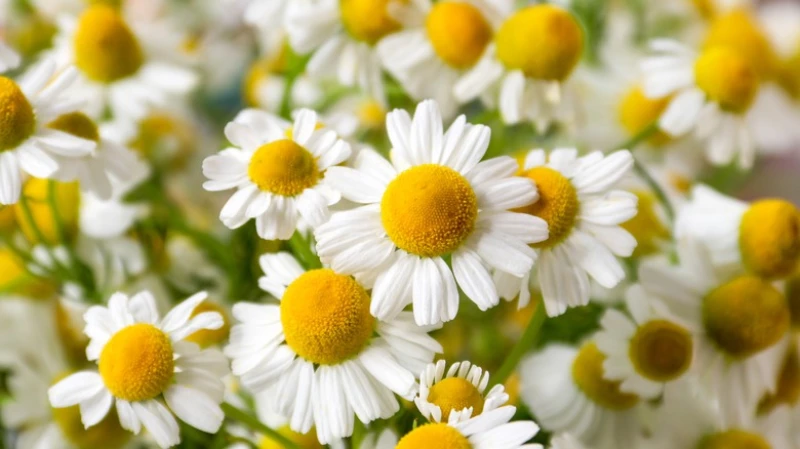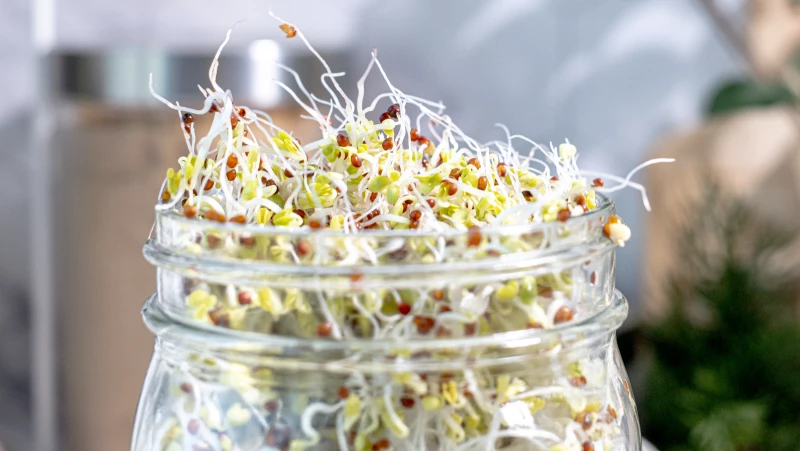Enhancing Zucchini Growth with Chamomile

Enthusiasts of tea, flowers, and gardening techniques can all find common ground in the benefits of incorporating chamomile into their gardens to support the growth and vitality of zucchini plants. For centuries, gardeners have utilized companion planting methods to optimize soil health, repel pests, and increase crop yield. By planting chamomile (Matricaria chamomilla) in close proximity to zucchini (Cucurbita pepo), gardeners can experience advantages such as insect attraction, fungal protection, and the provision of essential shade.
Chamomile, known for its use in herbal teas, belongs to the daisy family and adds visual appeal to gardens while offering valuable support to neighboring plants. Thriving in sunny locations with well-drained soil, chamomile can reach heights of up to 2 feet. Zucchini, a type of squash available in various forms including bushy and vining varieties, produces abundant harvests throughout the summer and fall seasons. These plants, known for their low maintenance requirements, flourish in full sun and moist soil conditions, mirroring the preferences of chamomile.
Chamomile enhances the well-being of zucchini plants by emitting chemicals that stimulate growth and enhance flavor. The presence of these beautiful flowers alongside your zucchini plants not only accelerates their growth but also improves the yield. Gardeners have found innovative uses for chamomile, such as using chamomile tea as a fertilizer or utilizing the flowers and leaves as nutrient-rich mulch.
Moreover, chamomile possesses antifungal and antibacterial properties, making it a valuable companion plant for zucchini. This is particularly beneficial as powdery mildew, a common fungal disease that thrives in warm, dry climates, often affects zucchini crops later in the season. Powdery mildew can hinder plant growth, reduce yield through premature ripening and sunburn, and significantly impact the vegetable garden. While practices like careful pruning of dead leaves and avoiding overhead watering can help control its spread, planting chamomile as an antifungal companion plant can provide additional protection.
Chamomile attracts beneficial insects
Another advantage of growing chamomile alongside zucchini plants is its ability to attract beneficial insects. These insects, such as hoverflies, ladybugs, and parasitic wasps, help pollinate your squash and prey on pests that could harm your vegetables. By attracting these insects, chamomile serves as a natural pest control method, keeping aphids at bay. Aphids, small pear-shaped insects, can cause damage to zucchini plants by spreading diseases. Therefore, having chamomile in your garden not only adds beauty but also supports a healthier and more robust squash crop.
Apart from repelling aphids, ladybugs and parasitic wasps also serve as pollinators in the garden. For zucchini plants to bear fruit, their blossoms need to be pollinated. While some gardeners opt for manual pollination, a more efficient and less labor-intensive method is to rely on natural pollinators. By planting chamomile near your zucchini plants, you can attract these pollinators and allow them to work their magic! Additionally, pairing these two sun-loving plants together will not only result in a bountiful harvest of delicious squash but also provide you with the soothing benefits of chamomile tea throughout the summer.








